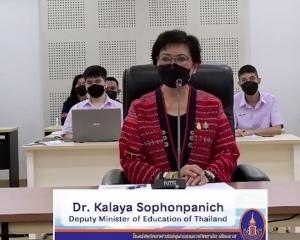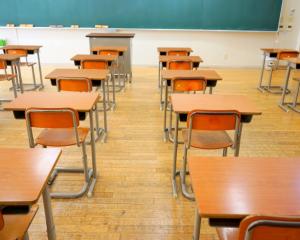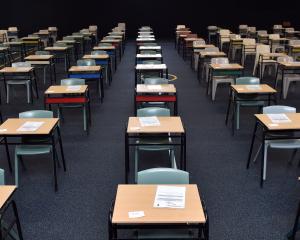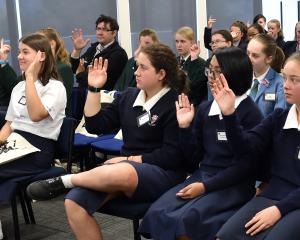As soon as issues of ethnicity enter the debate about basic primary-school education, common sense flies out the window.
The latest wail, that there is a "crisis of failure" in our primary schools and Maori are its victims, must not be viewed in isolation from the whole.
A great deal of work has been carried out in the past decade to improve the ways we teach youngsters the basics of reading and writing, and the results - if as yet unspectacular - at least show progress.
Children learn literacy in all kinds of ways, including telling stories or hearing them, play, dance, through films, art, experiences at home, and from participating in music, such as singing. Our teaching methods should, and now do, include all these methods, especially in the earliest years.
It may well be, however, that there is less emphasis on the role of oral language in supporting reading and writing knowledge and skills than there should be across all schools at all decile levels.
These factors may be regarded as desirable objectives in teaching basic language skills. What of the practical results? Some critics of present methods believe insufficient attention is being paid to the importance of pupil attitude towards reading and writing, that it should be an enjoyable experience as well as being a necessary discipline.
The abilities to motivate and involve children are skills all teachers ought to have, but it is plain many do not, and in particular junior teachers lacking experience may simply lack competence.
This will become crucial in classes where some children are making advanced progress while others are making little: how does the teacher cultivate the exceptional learner's abilities while attempting to instil basic knowledge in the slow coach?
There is at least a suspicion that in many classes the focus will be on the former. The extraordinary challenge facing primary school teachers is that of so many children arriving at school with virtually none of the abilities of their peers.
How teachers are to provide the specific instruction in a busy classroom to raise these unfortunates to the necessary standard is a severe challenge to education.
This becomes manifest when teacher skills and knowledge are lacking. Senior teachers have reported their concerns about the low level of literacy tuition experienced by many of the beginning teachers in their schools, and it is to be wondered whether all junior teachers are sufficiently literate themselves to teach basic comprehension, reading, spelling, writing and grammar to competency.
Schools have been required to teach the new New Zealand Curriculum from the beginning of this year, as well as National Standards in literacy and numeracy in years 1 to 8 - one key objective of which is to ensure pupils having trouble are identified and given the help they need to catch up.
The Ministry of Education also has initiatives focused on improving reading comprehension or numeracy achievement in years 1 to 4 in low-decile schools with a high proportion of Maori or Pacific Island pupils.
It claims that in schools where this programme is being taught, pupil achievement is moving upwards towards national norms. Professional development for teachers for improving pupil learning and achievement in literacy has also been made available.
The ministry says the difference in achievement levels between high- and medium-decile schools is reducing but the difference in achievement levels between high- and low-decile schools remains unchanged yet Maori pupils have, in general, made significant progress, particularly in years 4 to 8. However, it also correctly notes that every pupil "is heavily influenced by teacher competence".
A recent review report suggesting many schools - primary and secondary - are not demonstrating sufficient commitment to ensuring achievement of Maori students needs to be seen against this background. Yet it stands to reason strong links between schools and parents will have a beneficial influence on pupils.
The elements which negatively influence our junior school literacy standards are the level of pre-school and later support for pupils in the home; the effort made to help slow learners in class; the competency of the teaching; and the connections between school and home.
By international standards, our younger children are doing well, with consistent improvements over time. It is the persistent proportion of children who are failing to reach performance standards that is the problem.
About half our primary schools are responding positively to the needs identified by studies of Maori achievement and, clearly, more needs to be done.
But the community should as a priority consider literacy achievement as a whole and not merely on an ethnicity basis: very obviously we need higher literacy standards with a compulsory emphasis on English language - along with teachers capable of teaching them.











